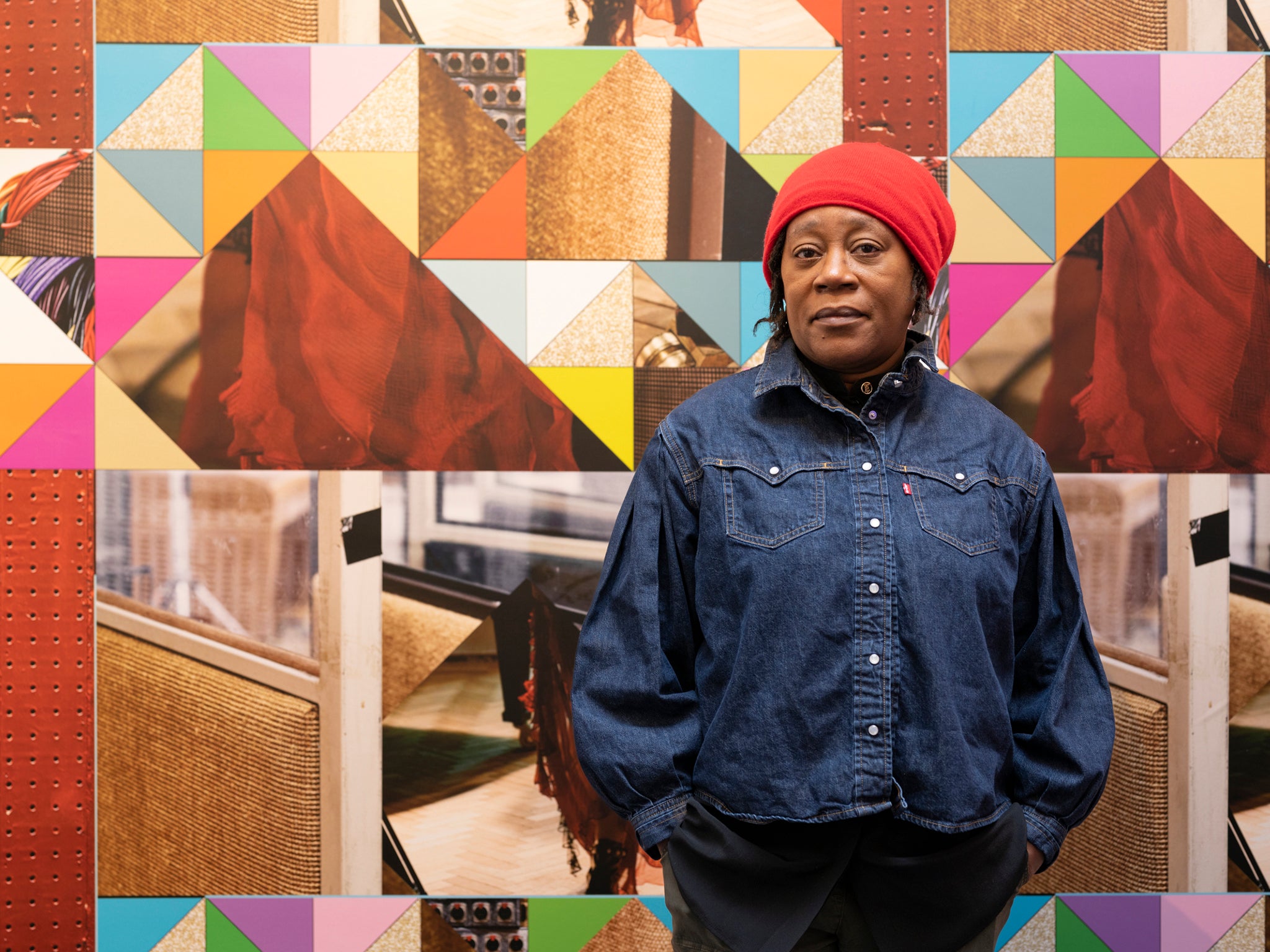Venice Biennale 2022 – British and French pavilions review: Pure aspirational uplift
Britain’s Sonia Boyce and the French-Algerian artist Zineb Sedira deliver exhilarating works with a striking generosity of purpose

If any Black British artist seems destined for national treasure status, it’s Sonia Boyce. An unfailingly positive voice since her involvement in the pivotal Black Art movement of the early Eighties, Boyce (born 1962) has created some of Tate Britain’s most popular works in paintings such as Missionary Position II, while her recent video work imports anarchic Caribbean carnival traditions into British stately homes in some of the more imaginative reflections on Britain’s vexed colonial past. Who better, then, to represent Britain in the first Venice Biennale – the “Olympics of Art” – since the start of the pandemic? It’s also the first since Black Lives Matter and its attendant explosion in awareness of Black British culture.
In Feeling Her Way, Boyce gives literal vent to the “many voices” of Black British women. Five great singers – Errollyn Wallen, Jacqui Dankworth, Poppy Ajudha, Sofia Jernberg and Tanita Tikaram – animate the British pavilion with their voices, their soaring, sighing, keening tones floating through the austere neo-classical spaces. In the first room, they’re called upon to improvise “as animals or objects” (that’s what it says in the wall text), each stretching her voice, at times almost agonisingly, as though trying to hit some note or idea that’s just beyond reach. They then extemporise solo on a piece of their own.
There’s nothing so obvious as a song here. The performances, captured on video at Abbey Road Studios (a setting that’s as iconically British now as Buckingham Palace), don’t cohere in any obvious way. It’s the sense of collective striving, of “feeling their way”, of the visitor walking into a free-form vocal jam session that’s exhilarating. As the voices come towards you from different parts of the building it’s as though a new egalitarian, multi-racial Britain is being sung into existence. If that ideal isn’t exactly new, this work – commissioned by the British Council – seems calculated to demonstrate that post-Brexit Britain is still a world leader in terms of inclusivity and cultural experimentation.
Subscribe to Independent Premium to bookmark this article
Want to bookmark your favourite articles and stories to read or reference later? Start your Independent Premium subscription today.
Join our commenting forum
Join thought-provoking conversations, follow other Independent readers and see their replies